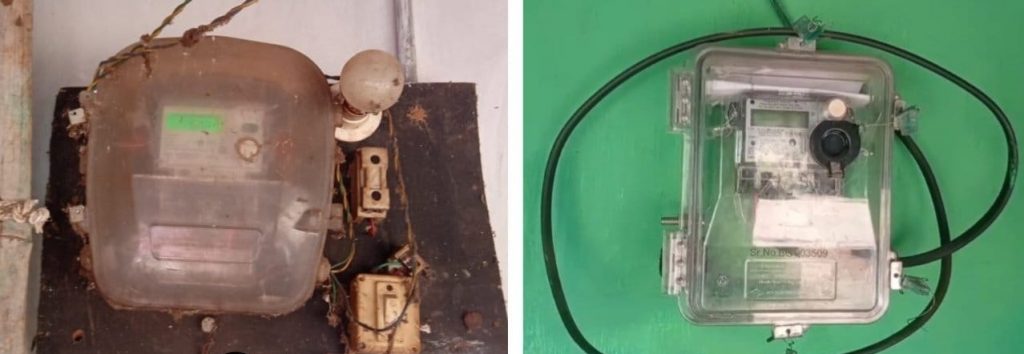Nandapur: Raipahad, a disputed village under Golur panchayat in Koraput district, has become the centre of fresh controversy after its residents reportedly rejected electricity connections from the state government and chose to continue receiving power from neighbouring Andhra Pradesh. The issue gained public attention after Tata Power Southern Odisha Distribution Ltd. (TPSODL) posted on social media X that electrification work in Raipahad had been completed under the Biju Gram Jyoti Yojana (BGJY) scheme.
According to the power company, a transformer was installed and electric meters were set up in every household. However, villagers allegedly refused to use Odisha’s power supply since Andhra Pradesh had already electrified the area.
This sparked a row, with the district administration and Nandapur block officials rejecting TPSODL’s claims. While TPSODL said a committee led by Nandapur Block Development Officer (BDO) Durga Prasad Dora had been formed to convince villagers to switch to Odisha’s grid, BDO Dora refuted this, stating no such committee existed and the company’s statement lacked factual accuracy.
Also Read: Odisha: Drones monitor fault detection, help respond to power failures in remote areas
Currently, each household in Raipahad reportedly has two electricity meters — one from Odisha and another from Andhra Pradesh. However, only Andhra’s supply is active. Despite the presence of transformers and meters, Odisha’s connections remain inactive, deepening local frustrations and fuelling debates over the state government’s failure to assert control over border villages. The issue was first highlighted in a vernacular newspaper April 26, 2025.
Following this, TPSODL issued a clarification September 10, defending its actions. But district authorities once again rejected the company’s version. The Raipahad controversy sheds light on the larger issue of Andhra Pradesh’s ongoing efforts to strengthen its hold over Odisha’s border villages. Reports suggest Andhra has been offering ration cards, Aadhaar, voter IDs, education, healthcare, and inclusion in state and Central welfare schemes to residents of at least eight panchayats in the Nandapur block — beyond the contested Kotia region.
In Raipahad specifically, villagers have received six houses under a Central housing scheme, electricity, clean drinking water, pensions, job cards, MGNREGA projects, and land titles under the Forest Rights Act — all from Andhra Pradesh. These sustained welfare efforts have made the villagers feel more supported by Andhra than by their own state. Although two rounds of talks were held between Odisha and Andhra Pradesh at Raipahad and the Chatua forest guest house, Andhra Pradesh reportedly failed to provide evidence supporting its claim.
Odisha, on the other hand, presented documents indicating Andhra’s encroachment nearly 2.5 km into its territory. Villagers alleged that Odisha’s promises of development made during those talks remain unfulfilled even after nearly two years. While Andhra Pradesh has since withdrawn most of its welfare schemes in the area, it continues to supply free electricity — a key reason why villagers have refused to switch to Odisha’s power supply, which requires payment.
Local representatives say there was no official dialogue with villagers about power connections. Residents question why they should pay for Odisha’s electricity when Andhra provides it free of charge. Intellectuals and activists have urged the Odisha government to act decisively and prioritise development in border areas like Raipahad. BDO Dora has stated he will take up the matter with the Koraput Collector and TPSODL officials. The dispute continues to highlight deep-rooted administrative and political challenges in asserting Odisha’s authority over its vulnerable border regions.
